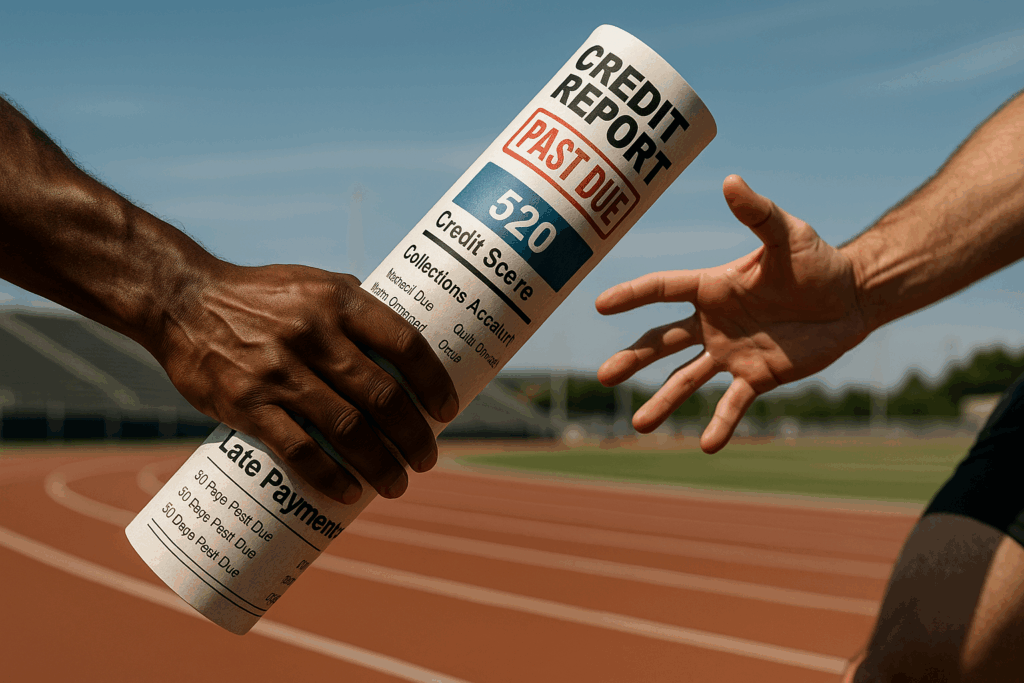What Happens to Your Score When a Creditor Sells Your Debt

If you’ve ever fallen behind on a bill, you may have gotten a notice that your account was “sold to collections” or “assigned to a debt buyer.” It’s a jarring moment, and one that raises a lot of questions about your credit.
Let’s break down what this really means, how it shows up on your credit report, and what you can do about it.
1. What “Selling Your Debt” Means
When a creditor sells your debt, it usually means you’ve been behind on payments for an extended period (often 90 to 180 days). Instead of continuing to try to collect, the original lender sells the debt to a collection agency or debt buyer, often for a fraction of the original balance.
From that point forward, the new owner of the debt (not the original lender) has the right to collect.
2. How It Affects Your Credit Score
Unfortunately, the damage to your credit often happens before the sale even takes place. Here’s what typically happens:
- Late Payments Reported: Missed payments (30, 60, 90+ days late) are reported to the credit bureaus and can significantly drop your score.
- Charge-Off Status: Once the account is sold, the original creditor will usually report it as a “charge-off”: meaning they’ve written it off as a loss. This is a major negative mark that can stay on your report for up to 7 years from the date of your first missed payment.
- Collection Account Added: The new debt owner may report a separate “collection” account to the credit bureaus. This means you can have two negative items tied to the same debt. One from the original lender and one from the collection agency.
3. Will Paying It Off Help Your Score?
Paying off a collection account can help, but the impact depends on the type of credit scoring model being used:
- Older Models (FICO 8 and earlier): Even if you pay it, the collection will still count against you until it ages off your report.
- Newer Models (FICO 9, VantageScore 3.0 & 4.0): Paid collections are ignored in score calculations, which means paying it could help you bounce back faster.
- Lender Policies: Some lenders still use older scoring models, so paying off a collection may help your approval odds even if it doesn’t boost your score right away.
4. Can You Remove the Original Debt Entry?
If the debt is valid, the original creditor’s charge-off will usually remain on your report for the full 7 years, even if it’s sold. However, you can:
- Dispute any inaccurate information (dates, balances, status).
- Negotiate a “pay-for-delete” with the collection agency (some agree to remove the account in exchange for payment, though they aren’t required to).
5. How to Limit the Damage
- Act Early: If you’re behind, communicate with the creditor before they charge off the account.
- Know Your Rights: Under the Fair Debt Collection Practices Act (FDCPA), collection agencies must follow strict rules.
- Monitor Your Credit: Use a three-bureau monitoring service so you can track updates from both the original creditor and any collection accounts.
Bottom line:
When a creditor sells your debt, the hit to your score is often already in motion from the missed payments. The collection account can make things worse, but you still have options to limit the long-term impact, and possibly even remove the collection from your report entirely.
Need help building (or repairing) your credit the right way?
At CreditNerds, we help people use credit as a tool.
Book your free consultation and let’s create a game plan for your goals.

